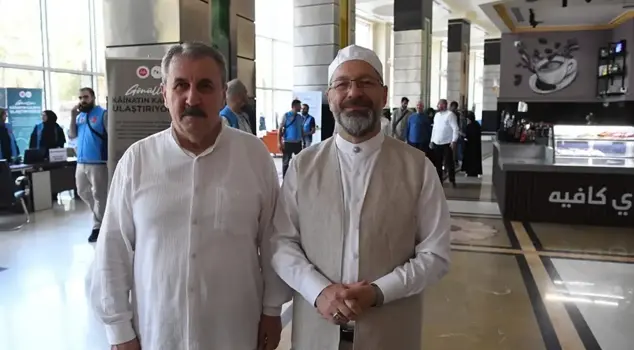
16.08.2025 21:35
BBP (Great Unity Party) Chairman Mustafa Destici expressed his support for the Diyanet (Directorate of Religious Affairs) regarding the discussions on the Friday sermon about inheritance, stating that the institution reminds people of God's commands and fulfills its duty. Destici emphasized that inheritance law is applied according to state laws and that there is no contradiction between religious warnings and state law.
Recently, Friday sermons have taken center stage in ongoing discussions, and the sermon titled "The Right of the Servant is a Shirt of Fire," read by the Presidency of Religious Affairs last week, particularly drew attention due to its statements regarding "inheritance." The sentence in the sermon stating, "Depriving one's daughters of their inheritance, and the daughters not being content with the rights ordained by Allah is a violation of the rights of the servant," led to various interpretations in the public.
SUPPORT FROM DESTİCİ TO THE PRESIDENCY OF RELIGIOUS AFFAIRS
While the discussions continue, a noteworthy statement came from Mustafa Destici, the Chairman of the Great Unity Party (BBP). Stating that the Presidency of Religious Affairs reminded people of Allah's commands as always, Destici said, "In this week's sermon, the importance of adhering to the measures set by Allah regarding inheritance has been emphasized. Just like prayer, fasting, almsgiving, and modesty, this is also a responsibility left to the individual's will."
"INHERITANCE LAW AND CITIZENSHIP RIGHTS..."
Destici characterized the criticisms directed at the Presidency of Religious Affairs as "engaging in nonsense," stating, "When religious leaders do not remind people of Allah's commands, they are not fulfilling their duties. However, it should not be forgotten that inheritance law and citizenship rights are applied within the framework of state laws. Religious provisions fall within the moral responsibility of believers; legal regulations are binding for all citizens," he expressed.
The BBP leader emphasized that there is no conflict between the religious warnings of the Presidency of Religious Affairs and the state's legal system, stating, "One is a guide for faith, the other is citizenship and legal security. Respecting both protects both freedom of belief and the legal order."
Here is Destici's post;